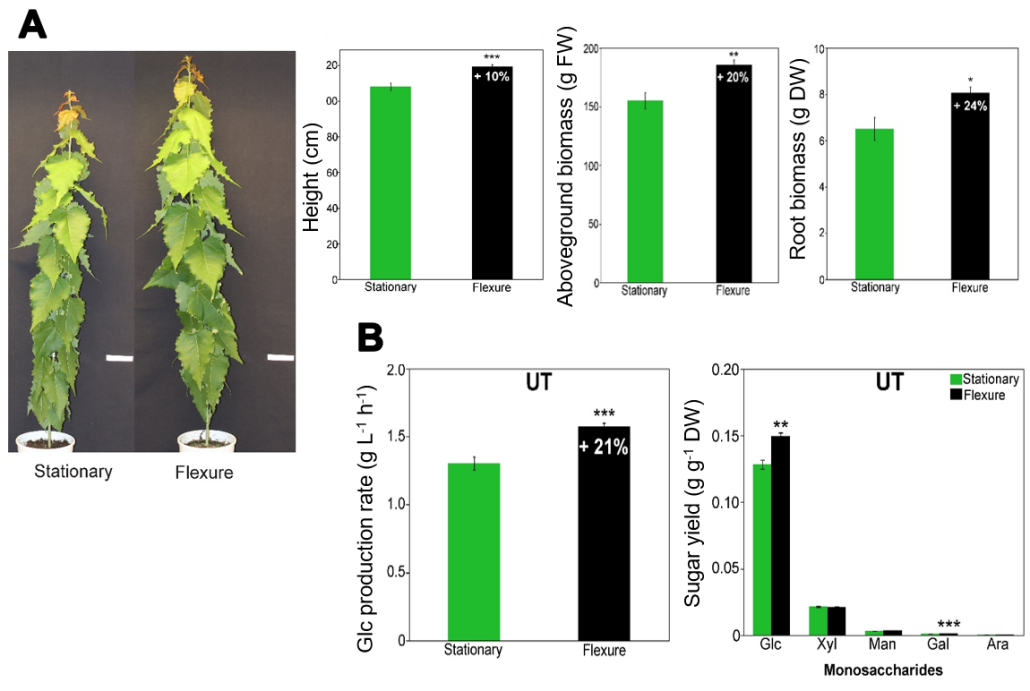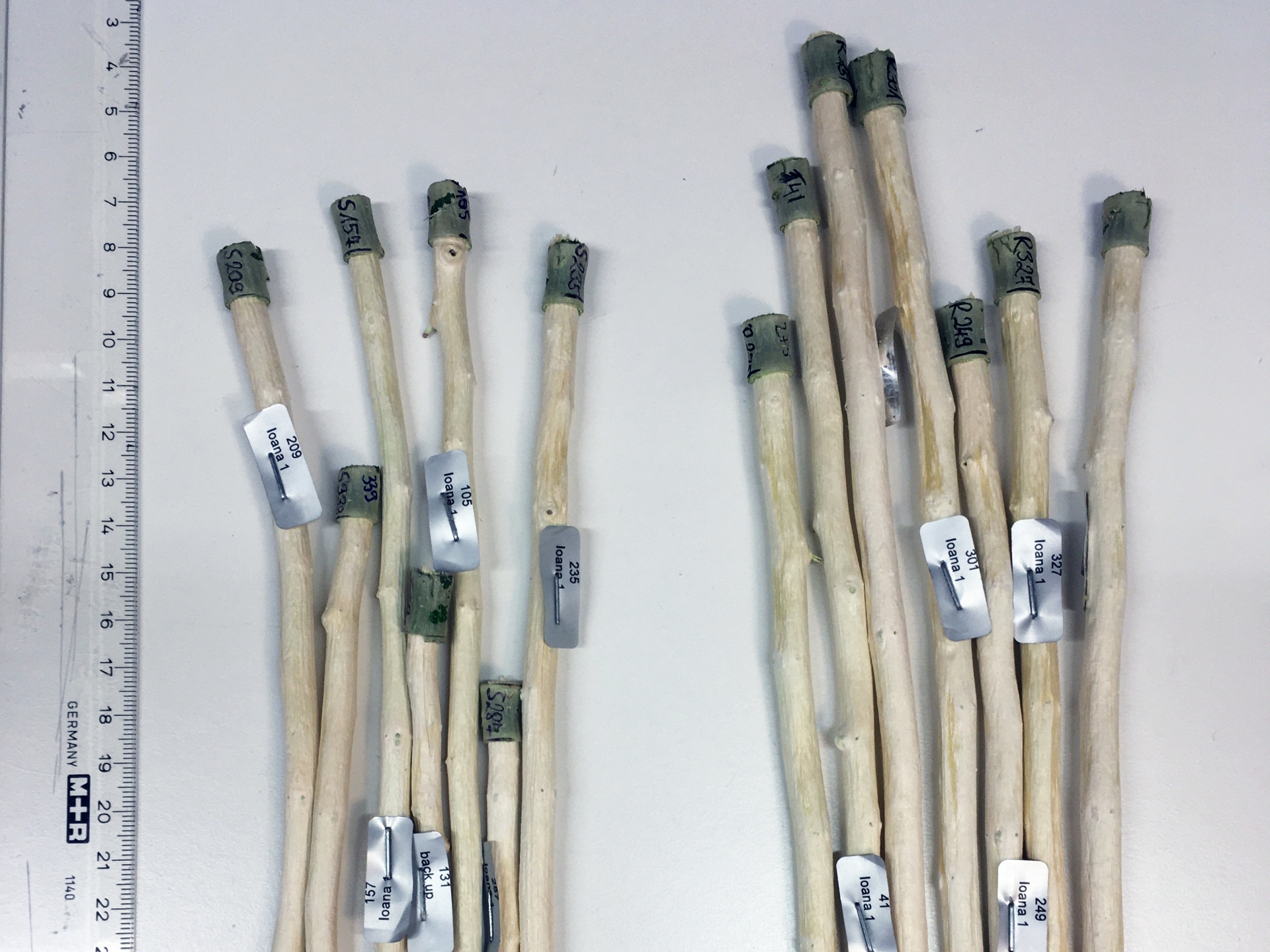Effects of mechanical stress on wood formation in hardwood model species aspen
Project leader: Ewa Mellerowicz, ewa.mellerowicz@slu.se
Other participants: Totte Niittylä, Gerhard Scheepers, Nathaniel Street, Sandra Winestrand
Platforms: ForFeed, BioPolChem
Organisations: SLU, RISE, UmU
Status: Completed
Reference: B4E3-TM-1-10
Call: B4E3-TM-1, 2021
Plants are adapted to some dose of mechanical stresses that they encounter during their lifespan, including wind, snow, mechanical disturbance by animals, and earthquakes. These stresses induce a developmental programme called thigmomorphogenesis. In trees, mechanostimulation induces flexure wood. Properties of flexure wood and the molecular mechanism of its development are poorly understood. In this project we subjected hybrid aspen to low level stem flexing to investigate changes in growth, wood properties, and in transcriptomes and hormonome of developing wood. Flexure wood was shown to be a superior material for saccharification compared to normal wood and stem flexing stimulated overall plant growth (fig 1). Flexure wood formation involved changes in expression of hundreds of genes and an increase in jasmonates, suggesting that the jasmonate signaling pathway is involved in flexure wood formation. These results are promising and can be further explored to: i) improve saccharification yields in plantations and ii) to improve methods of plant growth in nurseries.
Keywords: flexure wood; hybrid aspen; JA signaling; saccharification; thigmomorphogenesis








 Bio4Energy 2022
Bio4Energy 2022 ©Anna Strom
©Anna Strom